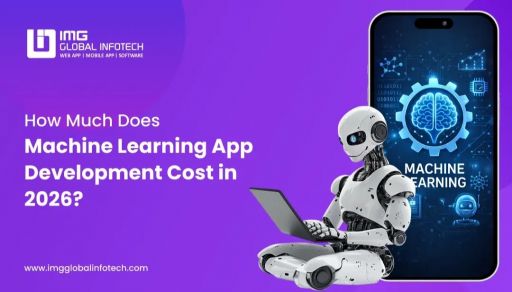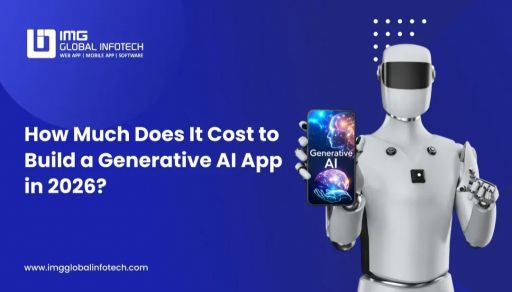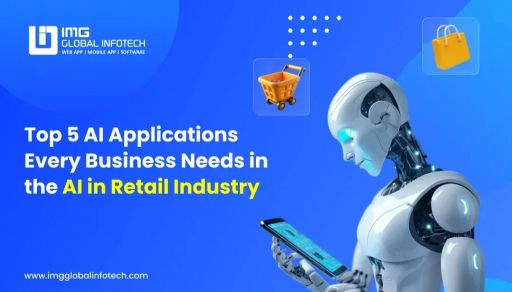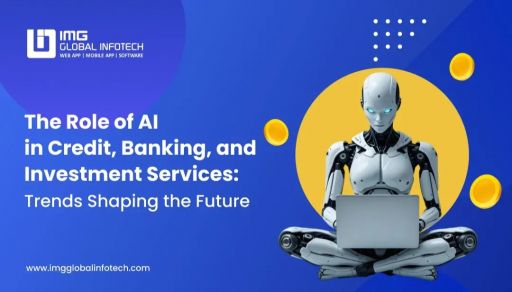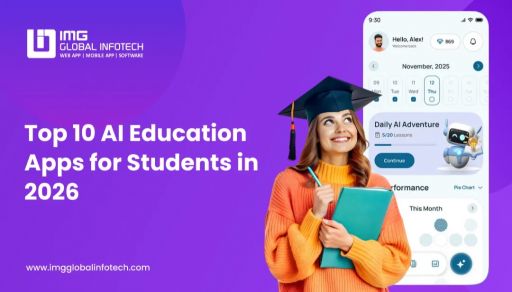10+ Examples Of AI Agents Across Industries
Dipti Singhal
Jul 03, 2025

Through Automation of complex tasks, intelligence decision making, and delivering targeted experience, Artificial Intelligence (AI) agents are completely transforming industries. From virtual assistance in a customer service environment, to autonomous robots in the manufacturing space, knowledge based agents are changing operations and customer experiences. AI agents leverage machine learning, natural language processing, and real-time data to perform tasks that typically require human intelligence. While AI agents will be deployed in healthcare, finance, retail, logistics, and many others, those deploying AI agents will be at an immense competitive advantage with higher efficiency, lower costs, and improved accuracy. Throughout this blog, we will feature 10+ real life examples of AI agents in order to help highlight AIAgent capabilities, the impact they are making, and their future potential to innovate.
Types of AI Agents
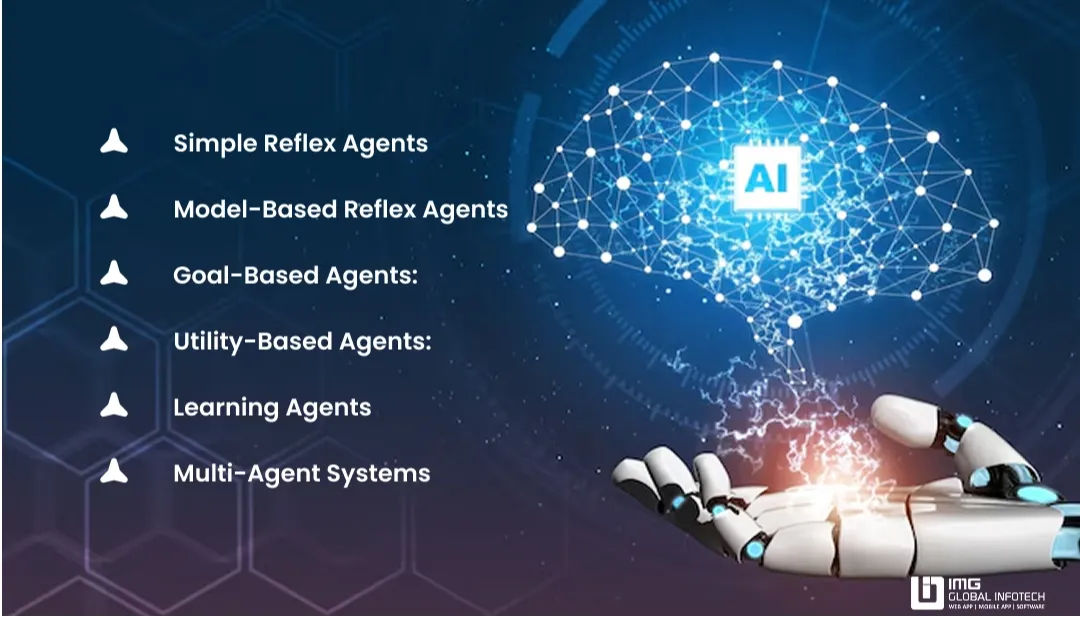
AIagents are systems that observe their environment via sensors and act on that environment utilizing actuators, based on their objectives. Knowledge-based agents can be simple, rule-based systems to complex intelligent agents. The knowledge of the various types of agents in AI, helps us to understand how artificial intelligence is applied in a vast number of applications and domain spaces. Below are the significant types of agents in AI:
Simple Reflex Agents
These agents are the simplest type of agents in that they act just based on the current precepts they are receiving, ignoring previous percepts and the history of earlier actions. They be|have in response to satisfaction of pre-existing rules (condition-action rules). For instance, a thermostat that typically turns on or off a heater is an example of a simple reflex agent that responds to the temperature of the room. Simple reflex agents limit their capability and hence are hardly able to effectively deal with complex situations.
Model-Based Reflex Agents
These AI types of agents have an internal model of the world which enables them to keep track of the current state based on previous actions and perceptions. For example, a robotic vacuum cleaner that maps the room and remembers the obstacles is operating as a model based agent in an example. A model based reflex agent in AIis primarily due to their reliance on a model of the world to act from, while working in an environment or where sensing is only partial, or one involving a noisy environment a utility-based agent would be more appropriate.
Goal-Based Agents:
These intelligent agents in AIare more capable than simple, or model-based agents, since not only do they examine the current state, but they also act in a more purposeful way by fulfilling the requirements for a goal. They plan and consider the competing choices available, and they carry out the action that is going to get them closer to achieving a goal. For example, in navigation applications you are directed as goal-based agents in the case of determining correct directions to reach the goal destination you are travelling.
Utility-Based Agents:
Utility-based different types of agents in AIare essentially goal-based agents, that consider many goals at one time, with each goal representing value, and action representations that satisfy the goals and would maximize utility, or overall satisfaction/happiness. For example, in the e-commerce domain, recommendation systems serve the purpose of displaying products that will most satisfy the user.
Learning Agents
learning agent that can learn from experience and can improve over time. Learning agents in AIare composed of four components: a learning element, a performance element, a critic, and a problem generator. Virtual personal assistants such as Siri and Alexa can be described as learning agents. Learning agents study user behaviors and, over time, reduce the variations in responses based on the user behavior.
Multi-Agent Systems
Multi-agent systems involve many agents that interact with each other in a shared environment. Agents in a multi-agent system can work together or compete to achieve their objectives. There are a number of different applications of multi-agent systems: AIsystems for user-generated content in multiplayer online games, swarm robotics applications, and automated trading systems.
Also Read - AI Software Development Process
AI Agents in Major Industries
Artificial Intelligence (AI) agents are intelligent decision-making systems that perceive their environment, make decisions, and take action to achieve a specified goal. When this rational agent in AI matures, intelligent agents are going to be integrated within industry operations to make processes more consistent and accurate while improving customer experiences. This is already happening, and we are still exploring how AIagents impact and change the way companies think about engaging and doing business.
1. Healthcare
AIagents are changing healthcare using smarter diagnostics, monitoring, and individualized treatment. Virtual health assistants powered by AIare working with patients on medication, monitoring and lifestyle-related health issues. AI's advanced capabilities are available to interact with the individuals schedule appointments, provide medication reminders, or assist in their mental health support. Diagnostic AI in Healthcare agents provide diagnostic support to physicians by assisting in the analysis of the results of X-rays, MRIs, and other tests for diseases and disorders such as cancer and neurological problems. AIalso provides robotic surgery that is able to assist the surgeon with precision and stability via intelligent systems.
2. Finance
In finance, agents types in artificial intelligence are also used for fraud detection, algorithmic trading, customer service, and risk assessment. AI fraud detection agents help analyze hundreds of millions of transactions in order to suggest and flag potential fraud as it happens. Robo-advisors also act as financial agents for end-users providing investment, research, financial, and life-style advice based on users' electronic and financial data and market conditions. Bank apps continue to build AI Chatbot for offering customer service across apps 24-7, thereby reducing the need for humans especially when OEM models replace traditional bank funding with services.
3. Retail and E-commerce
In retail and e-commerce, retailers adopt AIagents ' examples for product recommendations, inventory management, customer service, and demand forecasting combined with the types of products sold by retailers such as grocery, general merchandise, or specialty retailers. Recommendation engines for products follow users' trails of behavior, while shopping patterns, and of course preferences in seeking the likelihood of a sale for a sale. Chatbots and virtual assistants can purchase what is recommended for the customer related to their query, while operating calls in a reasonable manner that protects the user. AIagents also influence intermediary prices set by retailers using or adopting dynamic pricing based on user, inventory, pricing, and other factors that refine real-time viewing the service factor.
4. Manufacturing
In manufacturing, AIagents are affecting production and processing operations with the use of AIagents for production line optimization, quality control inspection, and predicting equipment failure often referred to as predictive analytics. Predictive maintenance agents monitor the status of machines and reschedule maintenance before machines go down thus reducing downtime and the costs to an organization. Computer vision AIagents physically inspect products for defects by scanning thousands of products at high speed so that consistent quality control methods are established. Autonomous mobile motions agents are in charge of handling logistics within factories.
5. Transportation and Logistics
A rational agent in an example plays an essential role within transportation and logistics in route planning, fleet management, and autonomous vehicles. Ride-sharing mobile apps running on AIagents manage drivers and riders, provide estimated times of arrival, and use big data to prioritize rides and efficiently map routes. AI in Logistics rely on AIto estimate delivery times, manage and track a package, and allocate their drivers in real-time. Autonomous delivery drones and learning agent examples in AIthat control self-driving trucks map roads, avoid obstacles, and make delivery decisions on behalf of the users.
Read More - AI In Transportation
6. Education
Artificial intelligence agents in education assist with offering personalized learning experiences, grading assignments, and intelligent tutoring. AIagents personalize learning by building Generative AI tools adapting the delivery of content to match a student’s pace of learning and style of learning needs. A virtual teaching assistant plays an AI agent's role to assist students with questions related to the course or an assignment, grading assignments, and providing feedback. AIis used within language learning mobile apps while agents activate the production of sentences by interacting conversationally with a student to increase their speaking skills.
Benefits of Using AIAgents Across Industries
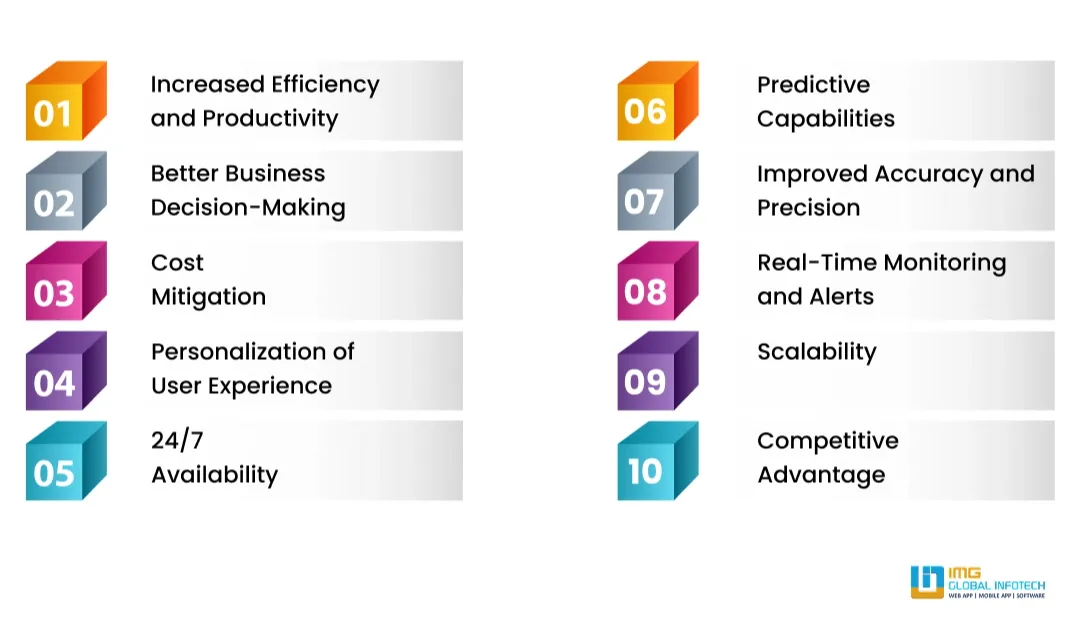
Artificial intelligence (AI) agents are intelligent systems that can perceive the environment, make decisions, and take action to meet a goal. These AI Trends particular for agents are changing how industries function by bringing efficiency, scalability and innovation to industries across the board. Below are ten main benefits of applying AI agents across industries:
1. Increased Efficiency and Productivity
AIagents automate redundant and more laborious tasks, freeing up human employees to engage on more strategic tasks. In the manufacturing space for instance, many AI-powered robots can run production lines for 24-hours a day, 7-days a week with low levels of downtime and be more productive while doing it.
2. Better Business Decision-Making
a machine learning agent can analyze billions of data points in real-time and provide businesses with actionable insights to help them realize timely and accurate business decisions. In finance, for example, machine learning agents are used to provide high level investment strategies by leveraging data and observable trends and predicting risk.
3. Cost Mitigation
AIagents often automate and make labor costs seem obsolete, which can ultimately lead to enhanced operational efficiency and lower overall costs. In customer support for example, AIchatbots are capable of handling custom queries, for example, thousands at a time with no person needing to respond.
4. Personalization of User Experience
AIagents can correctly recommend and personalize products, services and/or content based on user choices and behaviors. An example is E-commerce platforms, which structure the user experience through AI software development recommendation engines to show users specific items that they have a better chance of buying to improve customer conversion or satisfaction but also improve sales.
5. 24/7 Availability
Unlike people, AIagents don’t need breaks. They can run forever which gives support 24-7. In industries like healthcare and retail, this means availability of service is improved, and response times are faster.
6. Predictive Capabilities
AIagents can predict future events (or trends) using data that is historical. In logistics, they predict delivery time and spikes in demand, which allow for better planning. In health care, predictive agents can identify potential health pitfalls before anyone experiences any symptoms.
7. Improved Accuracy and Precision
AI agents reduce the margin for human error which is incredibly valuable for sectors like healthcare or manufacturing. If accuracy is essential, AI can get the job done with great precision (like an AIpicking out tumors in a radiologist scan or spotting accidents in manufacturing).
8. Real-Time Monitoring and Alerts
Model based agents in AIare able to enable continuous monitoring of a collection of systems, processes, and data streams. In cybersecurity, AI agents detect situations and exploits in real time allowing for quicker incident response times and minimizing data loss.
9. Scalability
AI agents can scale along with the needs of your business. Whether it means increasing the volume of customer inquiries or processing massive data volumes at an unprecedented scale all while eliminating the associated costs of manpower, AI allows its own costs to be maintained, allowing for scaling and directly addressing changing resource loads.
10. Competitive Advantage
Agents of AI enable organizations to leapfrog in innovation agility and responsiveness, allowing organizations to remain competitive by utilizing emerging technologies to create products and services that produce exciting, unique value propositions for customers. Companies that can effectively leverage AIto support their efforts typically have stronger customer experience, faster speed of service and better quality of service than their competitors.
Conclusion
AI agents are changing industries by automating processes, influencing decisions, and delivering unique and individualized experiences across a range of industries like healthcare, finance, retail, and many more. With every organization that adopts AI, the possibilities of new growth, efficiencies, and innovations continue to expand. At IMG Global Infotech, we specialize in development of smart intelligent AIsolutions specific to your industry. If you are looking to add AIagents to your current workforce or want to build an intelligent smart application from the ground up, our AI App development company full of experts can provide you with real value to your operations using strategic AI.
-
 D2C Ecommerce Website: Complete Development Guide for Startups
D2C Ecommerce Website: Complete Development Guide for Startups
-
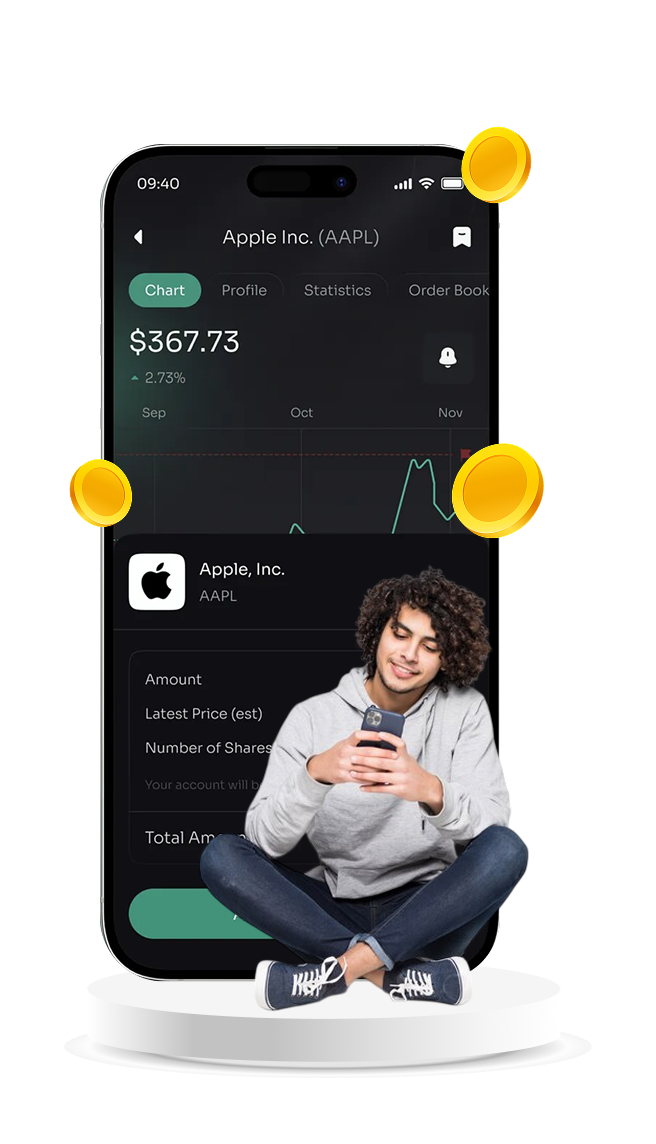 How to Build a Custom Fintech App Like Zerodha
How to Build a Custom Fintech App Like Zerodha
-
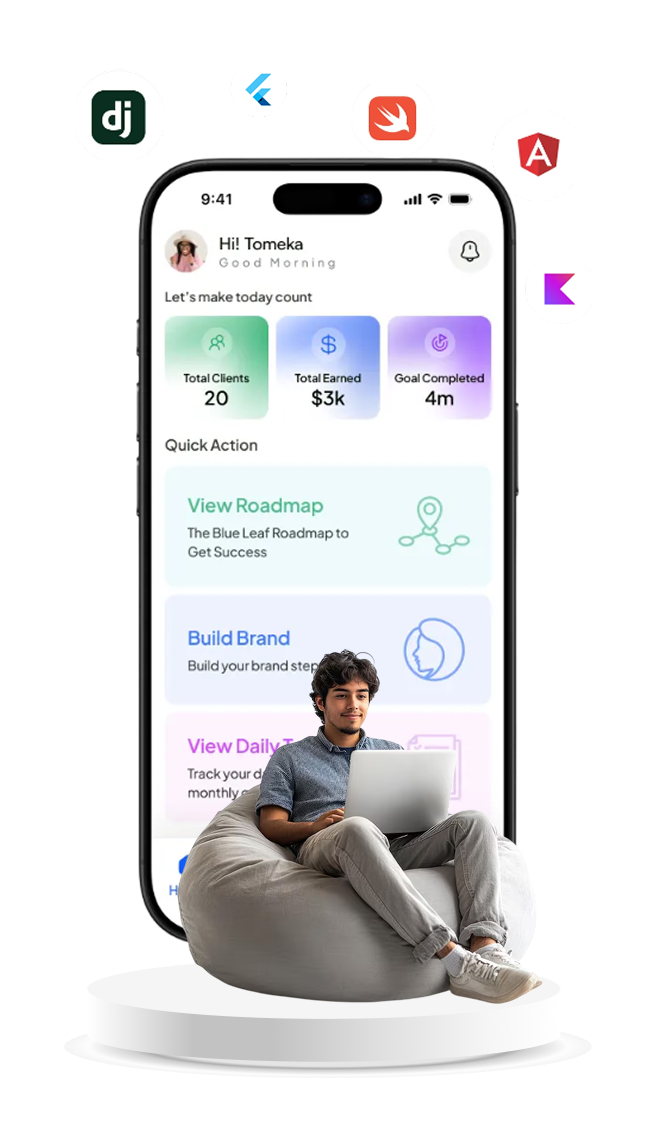 How to Start Mobile App Development in 2026
How to Start Mobile App Development in 2026
-
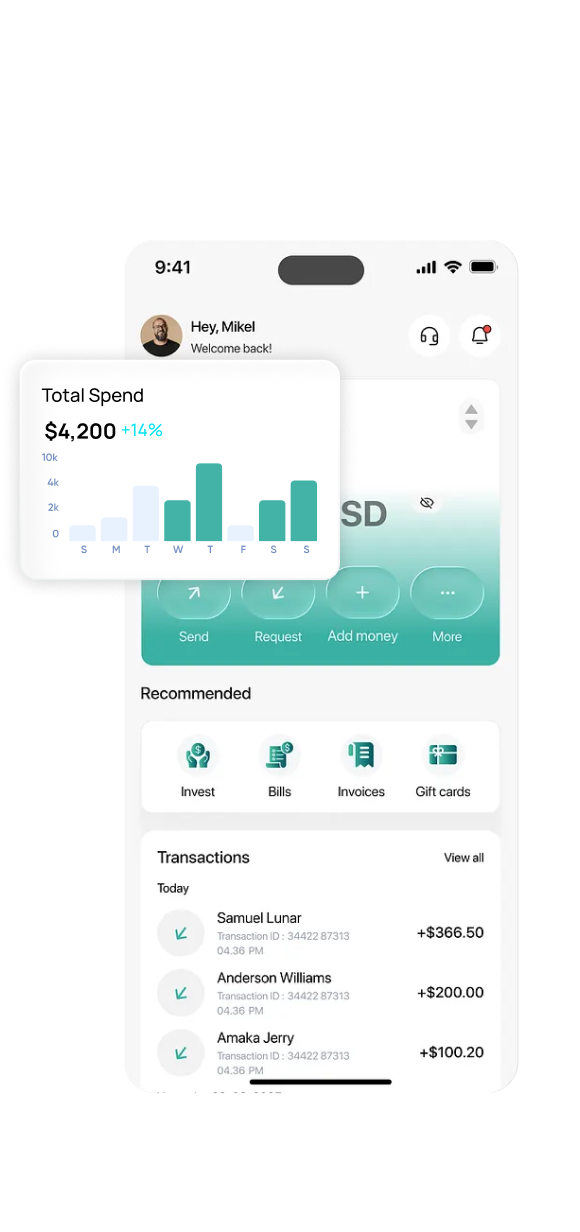 How Much Does It Cost to Develop Fintech App Like Revolut in 2026?
How Much Does It Cost to Develop Fintech App Like Revolut in 2026?
-
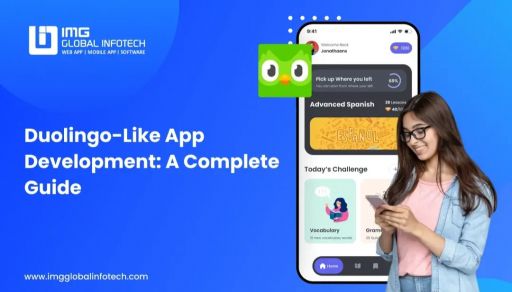 Duolingo-Like App Development: A Complete Guide
Duolingo-Like App Development: A Complete Guide
-
 How Much Does It Cost to Hire Ecommerce Web Developers in India?
How Much Does It Cost to Hire Ecommerce Web Developers in India?
Dipti Singhal is a skilled Content Writing Specialist at IMG Global Infotech, with strong expertise in creating engaging, SEO-optimized content for various industries. She focuses on blending storytelling with effective keyword strategies to help businesses connect with their audience and improve their online visibility. Passionate about delivering high-quality content that drives real results, Dipti plays an essential role in strengthening the company’s digital presence.


